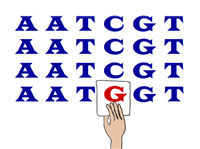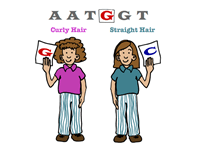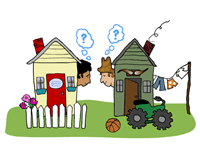
SNPs are Copying Errors
To make new cells, an existing cell divides in two. But first it copies its DNA so the new cells will each have a complete set of genetic instructions. Cells sometimes make mistakes during the copying process - kind of like typos. These typos lead to variations in the DNA sequence at particular locations, called single nucleotide polymorphisms, or SNPs (pronounced "snips").

